AP World History - Summer Assignment Terms & Concepts Flashcards
Terms : Hide Images [1]
| 10479088959 | Originally a vassal family of Shang China. The Zhou overthrew the Shang and established second historical Chinese dynasty. The Dynasty then Flourished from------------(1122 B.C.E to 256 B.C.E). First leader was King Wu Zhou. | Zhou (Dynasty) 1122 B.C.E to 256 B.C.E |  | 0 |
| 10479088960 | concerning farms, farmers, or the use of land | agrarian |  | 1 |
| 10479088961 | an alliance of nations joining together to fight a common enemy | allies |  | 2 |
| 10479088962 | a group of many islands in a large body of water | archipelago |  | 3 |
| 10479088963 | Characteristic of absolute rule or absolute ruler | autocratic / autocracy |  | 4 |
| 10479088964 | New name for the Western Pacific Rim where a significant regional realignment is now taking place. Includes rapidly-developing countries & parts of countries lining the Pacific from Japan's Hokkaido in the north to New Zealand in the South ________________________________________________________________________ | Austrasia |  | 5 |
| 10479088965 | How a minority group gradually adopts the customs and attitudes of the dominant/prevailing culture and becomes accepted. ________________________________________________________________________ | assimilation |  | 6 |
| 10479088966 | The number of births in a population in a certain amount of time | birth rate | 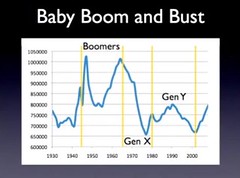 | 7 |
| 10479088967 | A world religion or philosophy based on the teaching of the Buddha and holding that a state of enlightenment can be attained by suppressing worldly desire ________________________________________________________________________ | Buddhism |  | 8 |
| 10479088968 | an economic system based on private ownership of capital | Capitalism |  | 9 |
| 10479088969 | farm crop grown to be sold or traded rather than used by the farm family | cash crop |  | 10 |
| 10479088970 | a social structure in which classes are determined by heredity | Caste system |  | 11 |
| 10479088971 | A monotheistic system of beliefs and practices based on the Old Testament and the teachings of Jesus as embodied in the New Testament and emphasizing the role of Jesus as savior ________________________________________________________________________ | Christianity |  | 12 |
| 10479088972 | A political system characterized by a centrally planned economy with all economic and political power resting in the hands of the central government. ________________________________________________________________________ | Communism |  | 13 |
| 10479088973 | The average weather a place has over a long period of time (usually 20 to 30 years) ________________________________________________________________________ | climate |  | 14 |
| 10479088974 | The largest main land masses of the globe | continent |  | 15 |
| 10479088975 | The ideas, beliefs, and customs that are shared and accepted by people in a society. ________________________________________________________________________ | culture |  | 16 |
| 10479088976 | something done by people in a particular society because it is traditional | custom |  | 17 |
| 10479088977 | the number of deaths per 1,000 people in an area | death rate |  | 18 |
| 10479088978 | a low triangular area where a river divides before entering a larger body of water | delta |  | 19 |
| 10479088979 | A political system in which the supreme power lies in a body of citizens who can elect people to represent them. ________________________________________________________________________ | democracy |  | 20 |
| 10479088980 | statistical characteristics of human populations, such as gender, age, income level, etc. | demographics |  | 21 |
| 10479088981 | Degradation of land, especially in semiarid areas, primarily because of human actions like excessive crop planting, animal grazing, and tree cutting. ________________________________________________________________________ | desertification |  | 22 |
| 10479088982 | the movement of customs or ideas from one place to another | diffusion |  | 23 |
| 10479088983 | height above (or below) sea level | elevation |  | 24 |
| 10479088984 | a distinct region or community enclosed within a larger territory | enclave |  | 25 |
| 10479088985 | An imaginary circle around the middle of the earth, halfway between the North Pole and the South Pole. ________________________________________________________________________ | Equator |  | 26 |
| 10479088986 | a social division based on national origin, religion, language, and often race | ethnicity |  | 27 |
| 10479088987 | Thinking about things based only on what your own culture/ethnicity does. Not valuing the culture, traditions, etc. of others. Belief your own ethnic group is superior. | ethnocentrism |  | 28 |
| 10479088988 | To ship out (merchandise, resources, workers, ideas, etc.) to other countries for sale, exchange, etc. ________________________________________________________________________ | export |  | 29 |
| 10479088989 | A geographical area of fertile land in the Middle East stretching in a broad semicircle from the Nile to the Tigris and Euphrates ________________________________________________________________________ | Fertile Crescent |  | 30 |
| 10479088990 | A political and social system that developed during the Middle Ages; nobles offered protection and land in return for service ________________________________________________________________________ | feudalism |  | 31 |
| 10479088991 | A low plain adjacent to a river that is formed chiefly of river sediment and is subject to flooding and overflow. Perfect for agricultural needs. ________________________________________________________________________ | flood plain |  | 32 |
| 10479088992 | the study of where people, places, and things are located and how they relate to each other | geography |  | 33 |
| 10479088993 | A poor densely populated city district occupied by a minority ethnic group linked together by economic hardship and social restrictions ________________________________________________________________________ | ghetto |  | 34 |
| 10479088994 | half of the earth | hemisphere |  | 35 |
| 10479088995 | A religion and philosophy developed in ancient India, characterized by a belief in reincarnation and a supreme being who takes many forms. ________________________________________________________________________ | Hinduism |  | 36 |
| 10479088996 | a person who comes to a country where they were not born in order to settle there | immigrant/emigrant |  | 37 |
| 10479088997 | The policy of extending authority over several foreign countries to form an empire. Imperialism takes colonialism to the next level by holding many colonies, not just one. ________________________________________________________________________ | imperialism |  | 38 |
| 10479088998 | To bring in (merchandise, resources, ideas, workers, etc.) from a foreign country for use, trade, sale, and processing. ________________________________________________________________________ | import |  | 39 |
| 10479088999 | Something that is originally from an area: Native. | indigenous |  | 40 |
| 10479089000 | French colony made up of Cambodia, Laos, and Vietnam | Indochina |  | 41 |
| 10479089001 | When a country organizes factories, technology, and workers to manufacture (in order to mass-produce) things for sale. ________________________________________________________________________ | industrialization |  | 42 |
| 10479089002 | the system of public works of a country, state, or region, such as roads, electricity, sewers, running water, etc. | infrastructure |  | 43 |
| 10479089003 | The dependence of countries on goods, resources, and knowledge from other parts of the world. ________________________________________________________________________ | interdependence |  | 44 |
| 10479089004 | supplying dry land with water by means of ditches | irrigation |  | 45 |
| 10479089005 | a relatively narrow strip of land (with water on both sides) connecting two larger land areas | isthmus |  | 46 |
| 10479089006 | the monotheistic religion founded by Abraham and whose followers are called Jews | Judaism | 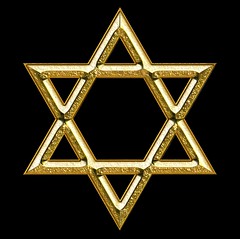 | 47 |
| 10479089007 | The way that the first people may have arrived in the Americas; connected Siberia and Alaska around 40,000 years ago. ________________________________________________________________________ | land bridge |  | 48 |
| 10479089008 | natural features of the earth's surface | landforms |  | 49 |
| 10479089009 | surrounded by land; cut off from the sea | landlocked |  | 50 |
| 10479089010 | The set of imaginary parallel lines that circle the earth parallel to the Equator and measure the distance north and south of the equator in degrees. ________________________________________________________________________ | latitude |  | 51 |
| 10479089011 | distance east or west of the Prime Meridian, measured in degrees | longitude |  | 52 |
| 10479089012 | A society in which the mother is the supreme authority in the family, clan or tribe and children belong to the mother's family or tribe; women have the governing authority. ________________________________________________________________________ | matriarchy | 53 | |
| 10479089013 | relating to or situated in or extending toward the middle | median |  | 54 |
| 10479089014 | a very large urban complex (usually involving several cities and towns) | megalopolis |  | 55 |
| 10479089015 | a person of mixed Spanish and Native American ancestry | mestizo |  | 56 |
| 10479089016 | the transformation of traditional societies into industrial societies | modernization |  | 57 |
| 10479089017 | The term used in Spanish and Portuguese colonies to describe someone of mixed African and European descent ________________________________________________________________________ | mulatto |  | 58 |
| 10479089018 | an independent geopolitical unit of people having a common culture and identity | nation-state |  | 59 |
| 10479089019 | The natural wealth of a country, consisting of land, forests, mineral deposits, water, etc.; natural resources 1) make a country wealth, 2) have a limit 3) are not man-made | natural resources |  | 60 |
| 10479089020 | west; denoting or characteristic of countries of Europe and the Western Hemisphere | occidental |  | 61 |
| 10479089021 | a political system governed by a small group of people | oligarchy |  | 62 |
| 10479089022 | east; denoting or characteristic of the biogeographic region including southern Asia and the Malay Archipelago as far as the Philippines and Borneo and Java. ________________________________________________________________________ | oriental |  | 63 |
| 10479089023 | Disease that occurs over a wide geographic area and affects a very high proportion of the population. ________________________________________________________________________ | pandemic | 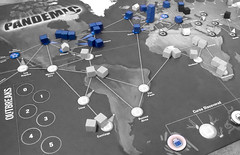 | 64 |
| 10479089024 | the super continent where all the continents were once joined | Pangaea |  | 65 |
| 10479089025 | a society in which the father is the supreme authority in the family, clan or tribe and children belong to the fathers family or tribe; men have authority over woman and children. | patriarchy |  | 66 |
| 10479089026 | body of land jutting into a lake or ocean, surrounded on three sides by water | peninsula |  | 67 |
| 10479089027 | a map that shows mountains, hills, plains, rivers, lakes, oceans, etc. | physical map |  | 68 |
| 10479089028 | an extensive area of level and rolling, treeless country, often covered by rich, fertile soil | plains |  | 69 |
| 10479089029 | an estate where cash crops are grown on a large scale (especially in tropical areas) | plantation |  | 70 |
| 10479089030 | a large area of flat land elevated high above sea | plateau |  | 71 |
| 10479089031 | a map showing units such as countries, states, provinces, districts, etc.l each is normally a different color | political map |  | 72 |
| 10479089032 | worshipping or believing in more than one god | polytheistic |  | 73 |
| 10479089033 | number of individuals per unit area | population density |  | 74 |
| 10479089034 | a line that runs north to south through Greenwich England; other meridians are measured from this | prime meridian |  | 75 |
| 10479089035 | the leader of the executive branch of a parliamentary government | prime minister | 76 | |
| 10479089036 | people who are believed to belong to the same genetic stock | race |  | 77 |
| 10479089037 | People who are forced to migrate from their home country and cannot return for fear of persecution because of their race, religion, nationality, membership in a social group, or political opinion ________________________________________________________________________ | refugees |  | 78 |
| 10479089038 | A ritual performed in some cultures at times when a individual changes his status (as from adolescence to adulthood) ________________________________________________________________________ | rite of passage |  | 79 |
| 10479089039 | another name for ceremonies or rites | rituals |  | 80 |
| 10479089040 | of, pertaining to, or characteristic of the country, country life, or country people; of or pertaining to agriculture: rural economy ________________________________________________________________________ | rural |  | 81 |
| 10479089041 | grassland with scattered trees; found in tropical regions of Africa, Australia, and South America | savanna |  | 82 |
| 10479089042 | not spiritual or religious; worldly | secular |  | 83 |
| 10479089043 | not migratory; settled | sedentary |  | 84 |
| 10479089044 | a usually poor town or section of a town consisting mostly of small wooden shacks | shantytown |  | 85 |
| 10479089045 | system in which landowners leased a few acres of land to farm workers in return for a portion of their crops ________________________________________________________________________ | sharecropping |  | 86 |
| 10479089046 | group of people who hold similar positions in society, share similar wealth, and receive similar respect from other members of society ________________________________________________________________________ | social classes |  | 87 |
| 10479089047 | the level of material comfort as measured by the goods, services, and luxuries available to an individual, group, or nation ________________________________________________________________________ | standard of living |  | 88 |
| 10479089048 | farming that provides for the basic needs of the farmer without surpluses for marketing | subsistence farming |  | 89 |
| 10479089049 | a noble title for the ruler of a Muslim country (especially of the former Ottoman Empire) | sultan |  | 90 |
| 10479089050 | a government tax on imports or exports | tariff | 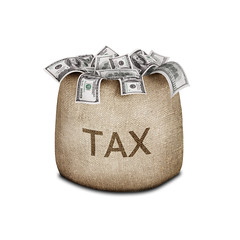 | 91 |
| 10479089051 | a government controlled by religious leaders | theocracy |  | 92 |
| 10479089052 | the business of buying and selling or exchanging items | trade |  | 93 |
| 10479089053 | a stream or river that flows into a larger river | tributary |  | 94 |
| 10479089054 | sameness; monotony; (adj.) uniform: the same all over | uniformity |  | 95 |
| 10479089055 | of, relating to, or located in a city; characteristic of the city or city life | urban |  | 96 |
| 10479089056 | the growth of cities and the migration of people into them | urbanization |  | 97 |
| 10479089057 | the temperature and humidity of a place at a specific time | weather |  | 98 |
| 10479089058 | The adoption of Western culture, government, food, clothing, and religion | Westernization |  | 99 |
| 10479089059 | The Old Stone Age ending in 12,000 B.C.E.; typified by use of crude stone tools and hunting and gathering for subsistence. ________________________________________________________________________ | Paleolithic Age Until~ 12,000 B.C.E |  | 100 |
| 10479089060 | The New Stone Age between 8000 and 5000 B.C.E.; period in which adaptation of sedentary agriculture occurred; domestication of plants and animals accomplished. ________________________________________________________________________ | Neolithic Age ~8,000 B.C.E to 5,000 B.C.E |  | 101 |
| 10479089061 | From about 4000 B.C.E.; when bronze tools were first introduced in the Middle East, to about 1500 B.C.E., when iron began to replace it. ________________________________________________________________________ | Bronze Age ~4,000 B.C.E to 1,500 B.C.E |  | 102 |
| 10479089062 | A level of social organization normally consisting of 20-30 people; nomadic hunters and gatherers; labor divided on a gender basis. ________________________________________________________________________ | Band |  | 103 |
| 10479089063 | Societies distinguished by reliance on sedentary agriculture, ability to produce food surpluses, and existence of non-farming elites, as well as merchant and manufacturing groups. ________________________________________________________________________ | Civilization ~3,200 B.C.E to Current period |  | 104 |
| 10479089064 | A form of writing developed by the Sumerians using a wedge-shaped stylus and clay tablets. ________________________________________________________________________ | Cuneiform 3,500 B.C.E to 100 B.C.E |  | 105 |
| 10479089065 | Cattle- and sheep-herding societies normally founded on the fringes of civilized societies; commonly referred to as "barbarian' by civilized societies. ________________________________________________________________________ | Nomads |  | 106 |
| 10479089066 | Literally "between the rivers"; the civilizations that arose in the alluvial plain of the Tigris and Euphrates river valleys. ________________________________________________________________________ | Mesopotamia ~5000 B.C.E to ~3500 B.C.E |  | 107 |
| 10479089067 | People who migrated in to Mesopotamia c. 4000 B.C.; created first civilization within region; organized area into city-states. ________________________________________________________________________ | Sumerians ~4000 B.C.E to 2200 B.C.E |  | 108 |
| 10479089068 | Massive towers usually associated with Mesopotamian temple complexes. | Ziggurauts |  | 109 |
| 10479089069 | A form of political organization typical of Mesopotamian civilizations; consisted of agricultural hinterlands ruled by an urban-based king. ________________________________________________________________________ | city-state |  | 110 |
| 10479089070 | Unified all of Mesopotamia c. 1800 B.C.E.; collapsed due to foreign invasion c. 1600 B.C.E ________________________________________________________________________ | Babylonian Empire 1792 B.C.E to 539 B.C.E |  | 111 |
| 10479089071 | (r. 1792-1750 B.C.E.) The most important ruler of the Babylonian empire; responsible for codification of the law. ________________________________________________________________________ | Hammurabi 1640 B.C.E to 1750 B.C.E |  | 112 |
| 10479089072 | Monumental architecture typical of Old Kingdom Egypt; used as burial sites for pharaohs. | pyramids |  | 113 |
| 10479089073 | An African state that developed along the upper reaches of the Nile c. 1000 B.C.E; conquered Egypt and ruled it for several centuries. ________________________________________________________________________ | Kush civilization |  | 114 |
| 10479089074 | River sources in Himalayas to mouth in Arabian Sea; location of Harappan civilization. | Indus River Valley ~2600 B.C.E to 1900 B.C.E |  | 115 |
| 10479089075 | Along with Mohenjo daro, major urban complex of the Harappan civilization; laid out on planned grid pattern. ________________________________________________________________________ | Harappa ~2500 B.C.E to ~2000 B.C.E |  | 116 |
| 10479089076 | Also known as the Huanghe; site of development of sedentary agriculture in China. | Yellow River |  | 117 |
| 10479089077 | First Chinese dynasty for which archeological evidence exists; capital located in Ordos bulge of the Huanghe; flourished 1600 to 1046 B.C.E. ________________________________________________________________________ | Shang ~1600 B.C.E to ~1000 B.C.E |  | 118 |
| 10479089078 | Pictographic characters grouped together to create new concepts; typical of Chinese writing. | ideographs |  | 119 |
| 10479089079 | Seafaring civilization located on the shores of the eastern Mediterranean; established colonies throughout the Mediterranean. ________________________________________________________________________ | Phoenicians ~1500 B.C.E to ~300 B.C.E |  | 120 |
| 10479089080 | The exclusive worship of a single god; introduced by the Jews into Western civilization. | monotheism |  | 121 |
| 10479089081 | Founder of the brief Qin dynasty in 221 B.C.E. | Shi Huangdi 259 B.C.E to 210 B.C.E |  | 122 |
| 10479089082 | Established in 221 B.C.E. at the end of the Warring States period following the decline of the Zhou dynasty; fell in 207 B.C.E ________________________________________________________________________ | Qin dynasty 221 B.C.E to 207 B.C.E |  | 123 |
| 10479089083 | Chinese dynasty that succeeded the Qin in 202 B.C.E.; rules for next 400 years. | Han dynasty 206 B.C.E to 220 C.E |  | 124 |
| 10479089084 | Also known as Kung Fuzi; major Chinese philosopher born in 6th century B.C.E. Philosophy based on need for restoration of order through advice of superior men. ________________________________________________________________________ | Confucius 551 B.C.E to 479 B.C.E |  | 125 |
| 10479089085 | Chinese defensive fortification in tended to keep out the nomadic invaders from the north; initiated during Qin dynasty and reign of Qin Shi Huangdi. ________________________________________________________________________ | The Great Wall Built from: 220 B.C.E to 206 B.C.E |  | 126 |
| 10479089086 | Creator of a major Indian and Asian religion; born in 6th century B.C.E. as son of local ruler among Aryan tribes. Found enlightenment;taught enlightenment could be achieved only by abandoning desires for all earthly things. | Buddha |  | 127 |
| 10479089087 | Indo-European nomadic pastoralists who replaced Harappan civilization; militarized society. | Aryans |  | 128 |
| 10479089088 | The sacred and classical Indian language. | Sanskrit Created: ~1500 B.C.E |  | 129 |
| 10479089089 | Aryan hymns originally transmitted orally but written down in sacred books. | Vedas Written: ~1200 B.C.E |  | 130 |
| 10479089090 | Clusters of caste group in Aryan society; four social castes - Brahmans (priests) warriors, merchants, and peasants; beneath four Aryan castes was group of socially untouchable Dasas. ________________________________________________________________________ | Varnas |  | 131 |
| 10479089091 | Low social caste in Hindu culture; performed tasks that were considered polluting - street sweeping, removal of human waste, and tanning ________________________________________________________________________ | untouchables |  | 132 |
| 10479089092 | Dynasty established in Indian subcontinent in 4th century B.C.E. following invasion by Alexander the Great. ________________________________________________________________________ | Mauryan ~320 B.C.E to ~180 B.C.E |  | 133 |
| 10479089093 | Grandson of Chandragupta Maurya; completed conquests of Indian subcontinent; converted to Buddhism and sponsored spread of new religion though his empire. ________________________________________________________________________ | Ashoka 340 B.C.E to 232 B.C.E (r. 273 - 232 B.C.E.) |  | 134 |
| 10479089094 | The caste position and career determined by a person's birth; Hindu culture required that one accept one's social position and perform occupation to the best of one's ability in order to have a better situation in the next life. | Dharma |  | 135 |
| 10479089095 | Dynasty that succeeded the Kushans in the 3rd century B.C.E.; built empire that extended to all but the southern regions of Indian sub-continent; less centralized that Mauryan Empire. ________________________________________________________________________ | Guptas 240 C.E to 590 C.E |  | 136 |
| 10479089096 | Animist religion that saw material existence as battle between forces of good and evil; stressed the importance of moral choice; righteous lived on or after death in "house of Song"; chief religion of Persian Empire. | Zoroastrianism Created: ~600 B.C.E |  | 137 |
| 10479089097 | Athenian political leader during the 5th century B.C.E.; guided development of Athenian empire; died during early stages of Peloponnesian War. ________________________________________________________________________ | Pericles 494 B.C.E to 429 B.C.E |  | 138 |
| 10479089098 | That culture associated with the spread of Greek influence as a result of Macedonian conquests; often seen as the combination of Green culture with eastern political forms. ________________________________________________________________________ | Hellenistic Period ~320 B.C.E to ~30 B.C.E |  | 139 |
| 10479089099 | The balanced constitution of Rome from c. 510 to 47 B.C.E.; featured an aristocratic Senate, a pane of magistrates, and several popular assemblies. ________________________________________________________________________ | Roman republic ~800 B.C.E to ~470C.E |  | 140 |
| 10479089100 | Roman general responsible for conquest of Gaul; brought back to Rome and overthrew republic; assassinated in 44 B.C.E. by conservative senators. ________________________________________________________________________ | Julius Caesar 100 B.C.E to 44 B.C.E |  | 141 |
| 10479089101 | Roman emperor from 312 to 337 C.E.; established second capital at Constantinople; attempted to use religious force of Christianity to unify empire spiritually. ________________________________________________________________________ | Constantine 272 C.E to 337 C.E |  | 142 |
| 10479089102 | Where people participate directly in assemblies that make laws and select leaders, rather than electing representatives. ________________________________________________________________________ | Direct Democracy Created: ~500 B.C.E |  | 143 |
| 10479089103 | Assembly of Roman aristocrats; advised on policy within the republic; one of the early elements of the Roman constitution. ________________________________________________________________________ | Senate |  | 144 |
| 10479089104 | Two chief executives or magistrates of the Roman republic; elected by an annual assembly dominated by aristocracy ________________________________________________________________________ | consuls |  | 145 |
| 10479089105 | (384-322 B.C.E.) Greek philosopher; teacher of Alexander the Great; knowledge based on observation of phenomena in material world. ________________________________________________________________________ | Aristotle 384 B.C.E to 322 B.C.E |  | 146 |
| 10479089106 | Athenian philosopher of later 5th century B.C.E.; tutor of Plato; urged rational reflection of moral decisions; contemned to death of corrupting minds of Athenian young. ________________________________________________________________________ | Socrates 470 B.C.E to 399 B.C.E |  | 147 |
| 10479089107 | Greek epic poem attributed to Homer but possibly he work of many authors; defined gods and human nature that shaped Greek mythos. ________________________________________________________________________ | Iliad |  | 148 |
| 10479089108 | Greek epic poem attributed to Homer but possibly he work of many authors; defined gods and human nature that shaped Greek mythos ________________________________________________________________________ | Odysssey |  | 149 |
| 10479089109 | Kingdom located in Ethiopian highlands; replaced Meroë in 1st century C.E.; received strong influence from Arabian peninsula; eventually converted to Christianity. ________________________________________________________________________ | Axum |  | 150 |
| 10479089110 | A Christian kingdom that developed int eh highlands of eastern Africa under the dynasty of King Lalaibela; retained Christianity in the face of Muslim expansion elsewhere in Africa. ________________________________________________________________________ | Ethiopia ~980 B.C.E to Present |  | 151 |
| 10479089111 | Religion of early Japanese culture; deveotees worshipped numerous gods and spirits associated with the natural world; offers of food and prayers made to gods and nature spirits. ________________________________________________________________________ | Shinto 800 B.C.E to 1945 C.E |  | 152 |
| 10479089112 | Cultural tradition that arose at San Lorenzo and La Venta in Mexico c. 1200 B.C.E.; featured irrigated agriculture, urbanism, elaborate religion, beginnings of calendrical and writing systems. | Olmec culture 1200 B.C.E to 400 B.C.E |  | 153 |
| 10479089113 | Site of classic culture in central Mexico; urban center with important religious functions; supported by intensive agriculture in surrounding regions; population of as much as 200,000. ________________________________________________________________________ | Teotihuacan Built: 100 B.C.E | 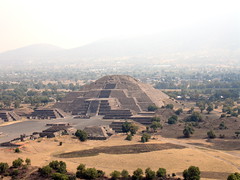 | 154 |
| 10479089114 | Classic culture in southern Mexico and Central America contemporary with Teotihuacan; extended over broad region; featured monumental architecture, written language, and highly developed: Math, Calendrical and religion systems. | Maya 1800 B.C.E to 250 C.E | 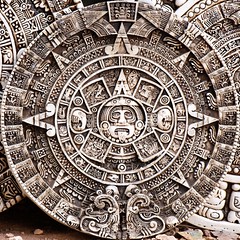 | 155 |
| 10479089115 | Group of clans centered at Cuzco that were able to create empire incorporating various Andean cultures; term also used for leader of empire. ________________________________________________________________________ | Inca ~1400 C.E to ~1500 C.E |  | 156 |
| 10479089116 | Islands contained in a rough triangle whose points lie inHawaii, New Zealand, and Easter Island. | Polynesia |  | 157 |
| 10479089117 | Chinese Daoists who launched a revolt in 184 C.E. in China promising a golden age to be brought about by divine magic. ________________________________________________________________________ | Yellow Turbans 184 C.E to 205 C.E |  | 158 |
| 10479089118 | Dynasty that succeeded the Han in China; emerged from strong rulers in northern China; united all of northern China and reconquered southern China. ________________________________________________________________________ | Sui (Dynasty) 581 C.E to 610 C.E |  | 159 |
| 10479089119 | Dynasty that succeedd the Sui in 618 C.E.; more stable than previous dynasty. | Tang (Dynasty) 618 C.E to 918 C.E | 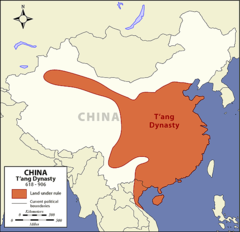 | 160 |
| 10479089120 | Major world religion having its origins in 610 c.e. in the Arabian peninsula; meaning literally submission; based on prophecy of Muhammad. ________________________________________________________________________ | Islam Created: 700 C.E |  | 161 |
| 10479089121 | Eastern half of Roman Empire following collapse of western half of old empire; retained Mediterranean culture, particularly Greek; later lost Palestine, Syria, and Egypt to Islam; capital at Constantinople. | Byzantine Empire 330 C.E to 1453 C.E |  | 162 |
| 10479089122 | Christian sect in Egypt, later tolerated after Islamic takeover. | Coptic Created: 42 C.E |  | 163 |
| 10479089123 | A religious outlook that sees gods in many aspects of nature and propitiates them to help control and explain nature; typical of Mesopotamian religions. ________________________________________________________________________ | animism |  | 164 |
| 10479089124 | Name given to Octavian following his defeat of Mark Anthony and Cleopatra; first emperor of Rome. ________________________________________________________________________ | Augustus Caesar 63 B.C.E. to 14 C.E. | 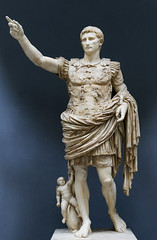 | 165 |
